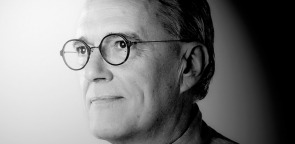
Jean-Daniel Tissot has co-directed a book on immortality. He met with “In Vivo” to discuss that utopia and the resulting scientific advances.
“L’immortalité, Un sujet d’avenir” (Immortality. A topic for the future), Jean-Daniel Tissot, Olivier Garraud, Jean-Jacques Lefrère, Philippe Schneider, 2014, Editions Favre
JDT Immortality is nonsense. It’s an utopia, a dream. I’d avoid defining it! Basically, immortality is a projection by humans to push
back their own death.
JDT Medicine can keep moving forward as much
as it wants. But as long as there are predators around us, we will die. Of course, experiments
like cloning make people believe that we can come close to immortality. But that doesn’t take into account the fact that our cells know they’ve
aged. Everything in humans is designed for
a programmed death. In animals too, even
if we don’t know why, life expectancy varies
with different species.
JDT That paradox adequately reflects our
contemporary society. It’s the epitome of
the “Because I’m worth it” attitude, and the selfishness plaguing the population worldwide.
We set everything. We block everything and
refuse to change it. I’d recommend reading Chapter XIX of Book I in the Essays of Montaigne, “That To Study Philosophy is to Learn to Die”.
One of the great lines in that beautiful essay is:
“Chiron refused to be immortal, when he was acquainted with the conditions under which
he was to enjoy it, by the god of time itself
and its duration, his father Saturn.”
JDT Yes. As long as death takes place at the
end of a full life.
JDT Absolutely. Leave your place to others!
Humans are capable of creating wonderful things, for example in the arts. But it’s the works that should remain immortal, not the individual. Sometimes I get the impression that the people who dream of immortality haven’t actually taken the time to stop and think about what that means. Let’s suppose I don’t die. In a future society that will necessarily have undergone deep cultural changes, will I still be myself? Won’t I be another person altogether, influenced by these changes? Along the same lines, I’m always amused when I notice that people rarely want to be immortal at age 120 but stuck at a more attractive age, like 60.
JDT The point of medicine used to be to treat people. But
today people think that the goal of medicine should be
to ward off death. I’m not criticising medical progress. Transplantation is a tremendous step forward. I’m simply saying that people who were supposed to die don’t die, that we now have new technology to “repair” ourselves. I’m not just referring to transplants but to artificial organs. It stirs new hopes of immortality. Meanwhile, as we considerably reduce the list of causes of death, scientific developments leave us with a pretty grim choice of diseases to die of.
In fact, people today are more afraid of suffering than dying. They dream of immortality but commit suicide more.
Go figure...
JDT Apoptosis is the controlled death of certain cells. They self-destruct to maintain balance within multicellular organisms. Take the case of a baby. Apoptosis is the process that keeps the foetus from being born with webbed feet. Some think that if we can control the mechanisms that govern apoptosis, we can in turn push back the limits of this programmed death, which on the scale of development shapes life and our appearance. It’s a sort of altruistic suicide.
JDT Apoptosis perfectly expresses the fact that life depends on death. Take the foetus. By sacrificing themselves, the cells that form the membrane between the smaller toes help build the baby. We’re all the result of a series of micro-deaths! ⁄
Jean-Daniel Tissot headed the Vaud Regional Blood Transfusion Service from 2007 to 2014.
He was appointed Dean of the Faculty of Biology and Medicine (FBM) in August 2015. After publishing a first book on blood (Éditions Favre, 2011), he brought together about 20 thinkers from
a wide range of backgrounds—a medical and literature professor, an artist, a biologist, a psychiatrist, a lawyer, an architect, a mathematician and a mountain climber—to look at the vast issue of immortality. Born in Lausanne in 1955, Jean-Daniel Tissot completed medical school at
the University of Lausanne (UNIL). He has experience in internal medicine, clinical haematology and laboratory haematology
and specialises in transfusion medicine.